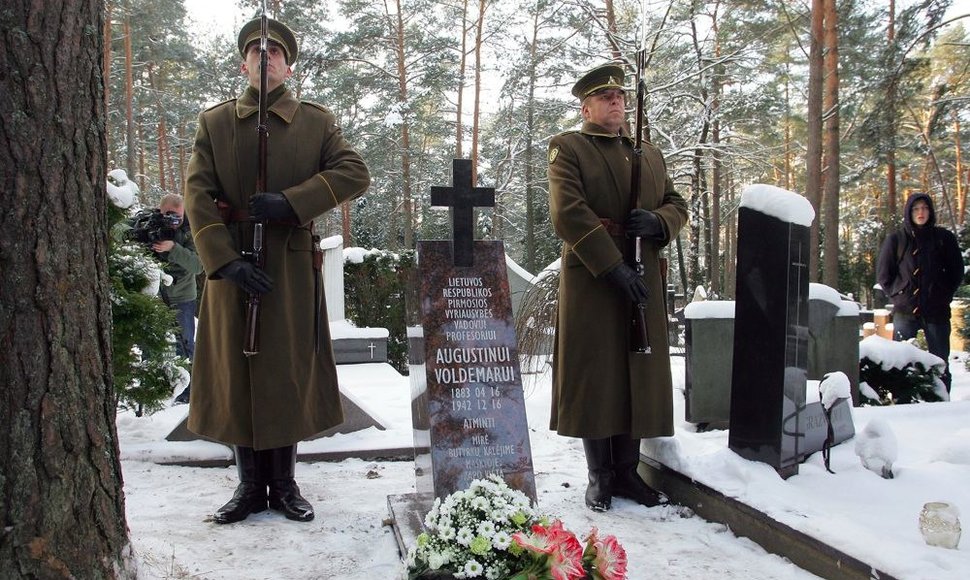The cenotaph – a symbolic structure in honor of a person whose grave or place of burial is unknown – was unveiled in Petrašiunų Cemetery in Lithuania's second largest city at noon.
Author of the initiative, Kaunas Sąjūdis liberation movement leader Raimundas Kaminskas, said the move restored certain historic justice 70 years after Voldemaras' death.
"I am happy that historic justice is restored after 70 years. He was a personality who was trapped but even then continued in his efforts: shortly before his death in a Moscow prison, he refused to accept food, as he understood he could be used for evil purposes. He was a fighter to the end," Kaminskas said at the ceremony. In his words, right-wing politicians should receive more recognition in Lithuania.
Among participants of the ceremony in Petrašiūnų Cemetery were members of Kaunas City Council, school students, and representatives of the Lithuanian Riflemen's Union.
The Voldemaras family thanked for the opportunity to light a candle for their loved one.
In the end of 1918, Voldemaras headed Lithuania's first Cabinet and was a close ally to then president Antanas Smetona after the 1926 coup d'état, he also served as the foreign minister. Three years later, their paths split, and the president ordered that Voldemaras be deported to live in Zarasai under police supervision.
Lithuanian historian and diplomat Alfonsas Eidintas said that opinions about Voldemaras were controversial but he was, without doubt, the best-known Lithuanian in Europe after Lithuania regained independence in the wake of World War I.
"I believe he is the most colourful of those who were in power. He was clearly an extraordinary person," Eidintas, Lithuania's ambassador to Greece, told BNS on Thursday.
"Looking at him as a foreign minister and a prime minister, we have very nice and very critical words to describe him. Even today, passing a judgement on him is a difficult thing to do," said Eidintas.
After the Soviet Union occupied Lithuania, Voldemaras returned to Lithuania from abroad in June 1940 and was immediately arrested by the Soviet authorities. He died of exhaustion in a Moscow prison on 16 December 1942.


















